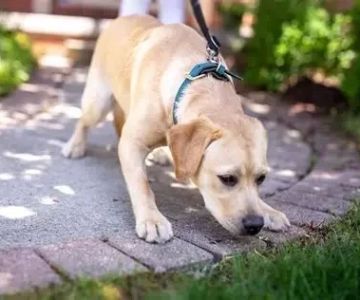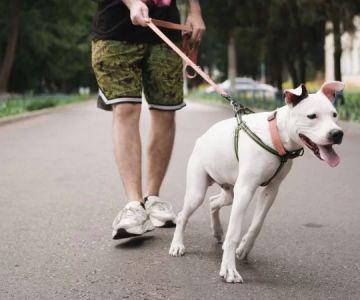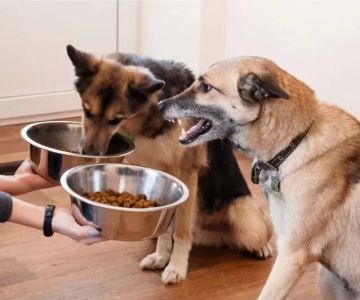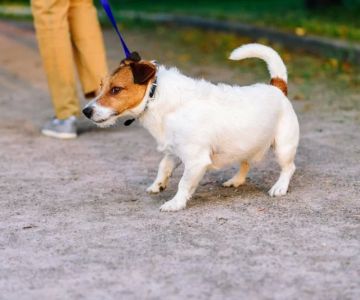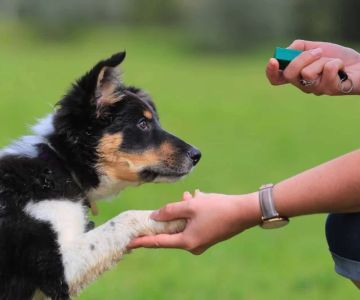1. Understanding Aggressive Dogs
Dealing with an aggressive dog can be a challenging experience for any pet owner. Whether your dog displays aggression towards other animals, people, or certain situations, understanding the root causes of aggression is the first step in addressing the behavior effectively. Aggression in dogs is often a reaction to fear, anxiety, territorial instincts, or past trauma, and can be managed with the right approach.
It's essential to recognize the signs of aggression, which can include growling, snapping, barking excessively, or even biting. If your dog shows any of these behaviors, it’s crucial to take action as soon as possible to ensure their safety, as well as the safety of others. Fortunately, aggressive behavior can often be addressed through training, behavior modification, and sometimes medical intervention.
2. Why Do Dogs Become Aggressive?
Understanding why your dog is behaving aggressively is essential for choosing the right approach to training. Dogs can become aggressive for various reasons, and addressing the root cause is key to finding an effective solution.
- Fear and Anxiety: Many dogs become aggressive when they feel threatened or fearful. This could be in response to loud noises, unfamiliar environments, or people.
- Territorial Instincts: Some dogs show aggression when they perceive their territory is being invaded, whether it’s their home, yard, or even their space in the car.
- Lack of Socialization: Puppies that haven't been properly socialized may develop fearful or aggressive behaviors towards new people, animals, or situations.
- Past Trauma: Dogs that have been abused or neglected in the past may show aggression as a defensive mechanism, especially if they associate certain triggers with past trauma.
- Medical Issues: Pain or discomfort caused by an injury or illness can make a dog more irritable and aggressive.
3. Best Training Methods for Aggressive Dogs
Training an aggressive dog requires patience, consistency, and the right approach. Here are some of the best training methods to help manage and reduce aggression in dogs:
- Positive Reinforcement: This method focuses on rewarding good behavior with treats, praise, or play. By reinforcing positive actions, your dog will begin to associate good behavior with rewards, which can reduce aggressive tendencies.
- Behavioral Redirection: When your dog shows signs of aggression, redirecting their attention to a different activity can help defuse the situation. For example, if your dog is growling or barking, get them to focus on a toy or command that they enjoy.
- Desensitization: Gradually exposing your dog to the situations, people, or environments that trigger their aggression, at a pace they can handle, can help them become less reactive. Over time, this can reduce the intensity of their response.
- Counter-Conditioning: This involves changing your dog’s emotional response to a situation from negative to positive. For example, rewarding calm behavior when they see a trigger, such as a stranger, helps them associate the presence of a trigger with something positive.
- Obedience Training: Teaching your dog basic commands like "sit," "stay," and "leave it" can give you control in situations where aggression might arise. The more obedient your dog is, the easier it will be to manage their behavior.
4. The Power of Positive Reinforcement
One of the most effective methods for training aggressive dogs is positive reinforcement. This technique works by rewarding your dog for good behavior, reinforcing the actions you want to see more of. For instance, when your dog remains calm in a situation that typically triggers aggression, you reward them with treats or praise.
Positive reinforcement not only helps in curbing aggressive behavior but also strengthens the bond between you and your dog. It promotes a calm and controlled environment, where your dog is more likely to focus on pleasing you rather than reacting aggressively. When done consistently, positive reinforcement can lead to long-term behavior changes in your dog.
5. Desensitization and Counter-Conditioning
Desensitization and counter-conditioning are highly effective tools in modifying aggressive behavior in dogs. Desensitization involves gradually exposing your dog to the source of their aggression in a controlled manner, at a low intensity, and over time. This allows your dog to become accustomed to the trigger without reacting aggressively.
Counter-conditioning works alongside desensitization by pairing the presence of the trigger (e.g., another dog or a person) with something positive, such as treats or playtime. Over time, this helps your dog associate the trigger with positive outcomes rather than something to be feared or aggressive about.
6. When to Seek Professional Help for Aggressive Dogs
While many aggressive behaviors can be addressed with training, there are times when professional help is necessary. If your dog’s aggression is severe, unmanageable, or poses a safety risk to others, it’s essential to consult with a professional dog trainer or behaviorist. A professional will have the experience and knowledge to tailor a training plan specific to your dog’s needs and address the underlying causes of aggression.
In some cases, a veterinary behaviorist or animal psychologist may be required to provide a more in-depth assessment and treatment plan. If medical issues are contributing to your dog’s aggression, your veterinarian may also be able to recommend medications to help manage anxiety or pain that could be affecting your pet’s behavior.
7. How Hidden Brook Veterinary Can Help with Aggressive Dog Training
If you’re struggling with your dog’s aggressive behavior, Hidden Brook Veterinary is here to help. We offer expert advice, training recommendations, and referrals to qualified trainers and behaviorists who specialize in aggressive dog behavior. Our veterinary team is also available to assess whether any underlying medical issues may be contributing to your dog’s aggression.
At Hidden Brook Veterinary, we believe in providing holistic care that addresses not only your pet’s physical health but also their emotional and behavioral well-being. Contact us today to learn more about how we can assist with your dog’s training needs and ensure they become a well-behaved, happy companion.
<> SEO Title: Best Training Methods for Aggressive Dogs: Tips and Techniques for Managing Aggression SEO Keywords: best training methods for aggressive dogs, aggressive dog behavior, dog aggression training, positive reinforcement for aggressive dogs, desensitization for aggressive dogs SEO Description: Learn the best training methods for aggressive dogs, including positive reinforcement, desensitization, and when to seek professional help. Improve your dog’s behavior with expert tips.



